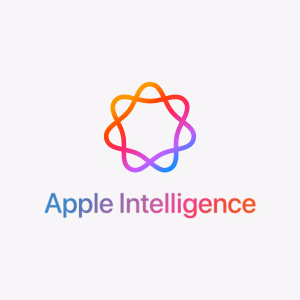Insights shared by Apple’s User Privacy Engineering Manager, Katie Skinner, and Privacy Product Marketing Lead, Sandy Parakilas shedding light on the advanced privacy measures in iOS 18 in a recent interview.
Apple’s approach to privacy is deeply rooted in the belief that privacy is a fundamental human right. This ethos drives their design and engineering processes, ensuring that privacy is integrated into every level of their technology.
From hardware to software, Apple prioritizes user data protection by minimizing data collection and maximizing transparency.
Apple operates in a complex global landscape where privacy laws vary significantly. The company has developed robust mechanisms to comply with these diverse regulations, often going beyond legal requirements to set new standards in privacy protection.
This proactive stance reflects Apple’s commitment to safeguarding user data worldwide.
New Privacy Features in iOS 18
One of the standout features of iOS 18 is the Enhanced App Privacy Reports. These reports provide users with detailed insights into how apps access their data, including how often and which types of data are accessed. This transparency allows users to make informed decisions about their app usage and permissions.
iOS 18 introduces more granular controls over location data. Users can now grant apps access to their location for a limited time, or only when actively using the app. This feature ensures that apps cannot continuously track users without their explicit consent.
Apple has revamped its Passwords app in iOS 18, adding new security features to help users manage and protect their passwords. The integration with Apple’s two-factor authentication system enhances security, ensuring that only authorized users can access their accounts and data.
Addressing Government Requests
Apple’s handling of government data requests is another crucial aspect of its privacy strategy. The company follows a strict and transparent process, requiring valid legal requests before providing any user data. This policy ensures that user privacy is not compromised without due process and legal oversight.
Apple employs advanced encryption technologies to protect user data from unauthorized access. Even when compelled by government requests, the company strives to minimize data disclosure, reinforcing its commitment to user privacy.
Balancing Innovation with Security
iOS 18 marks Apple’s adoption of ChatGPT, an advanced AI tool designed to enhance user experience. However, this integration raised privacy concerns, given the data processing requirements of AI technologies. Apple addressed these concerns by implementing strict data usage policies, ensuring that user data is anonymized and processed securely.
Apple leverages AI to improve privacy features in iOS 18. For instance, AI-driven algorithms help detect and block malicious activities, protecting users from potential threats. These enhancements demonstrate how AI can be utilised to bolster security without compromising user privacy.

Maps & Privacy
Apple Maps in iOS 18 has been updated to enhance user privacy. The app uses anonymized data collection methods, ensuring that user locations and movements cannot be traced back to individual users. This approach allows Apple to improve its mapping services without infringing on user privacy.
By processing data on the device rather than in the cloud, Apple Maps ensures that sensitive information remains under user control. This on-device processing model is a key element of Apple’s privacy strategy, reducing the risk of data breaches and unauthorized access.
Accessory Pairing
iOS 18 introduces secure protocols for pairing accessories with Apple devices. These protocols use end-to-end encryption to protect the data exchanged between devices, ensuring that accessory manufacturers cannot access or misuse user data.
Users now have more control over the data shared with accessories. iOS 18 allows users to review and manage the permissions granted to connected accessories, providing an additional layer of security and transparency.
Future Directions
Apple’s future privacy strategy focuses on maintaining transparency and giving users greater control over their data. The company plans to continue refining its privacy features, ensuring that they evolve in line with emerging threats and user needs.
As technology advances, Apple remains committed to integrating privacy into every innovation. The company’s ongoing investment in privacy research and development ensures that new features and technologies are designed with user privacy as a priority.
Apple’s privacy philosophy, exemplified by the new features in iOS 18, underscores its commitment to protecting user data. Through transparency, advanced security measures, and innovative technologies, Apple continues to set the standard for privacy in the tech industry. As users navigate an increasingly digital world, Apple’s dedication to privacy provides a robust foundation for a secure and trustworthy user experience.













